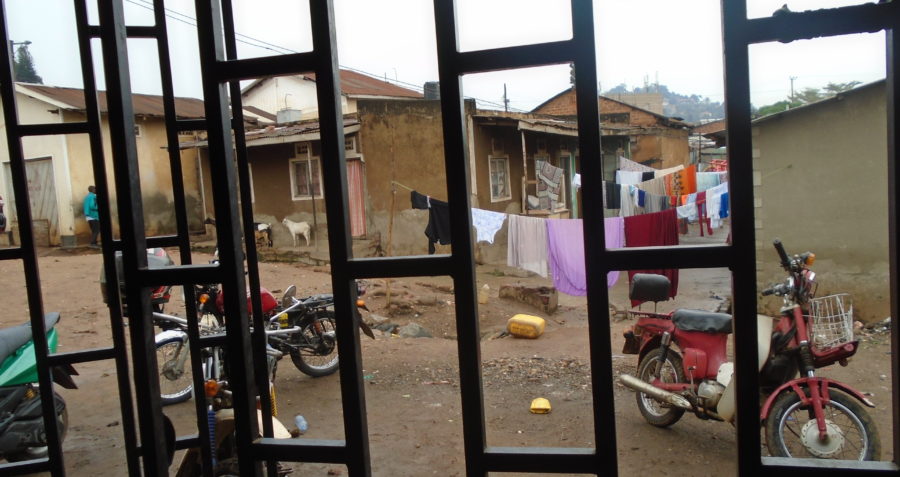Heroin addiction, sex work and the struggle for healthcare

Annabella, 20, was introduced to drugs as a teenager and became a heroin addict. She wants to quit but is struggling to access friendly health services.
Interview by Medina Gift, Uganda Harm Reduction Network
“My mother left me with my grandmother when I was a child. She now lives in Sweden and my father is in Denmark. I lived in an extended family, but there was nobody to talk to when I was a teenager, except from a few friends who later introduced me to drugs.
“When my grandmother discovered I was using drugs she sent me away. I was 16. Today I live in a ghetto, a place we call ‘the den’, because it is better than living on the street.
“Nobody listens to us but we too need to be cared for, we need to be loved, we need parents to guide us. Instead, as soon as we leave the den, we risk being arrested. We only leave to search for drugs and for sex work.
Heroin addiction and HIV testing
“I need three shoots of heroin a day. Each shoot costs between 15-20,000 UGX [4-5 USD]. The lack of heroin makes me burst out. I am forced to go to the street to get money, selling sex. I earn 2-3000 UGX [0.5-1 USD] if the client uses a condom, but 12-15,000 UGX [3-4 USD] for ‘live sex’ [sex without condoms]. I know the risk but drugs are more important.
“I test for HIV regularly at the health facility because I grew up with that routine. But in the den, lots of people have given up on life. For example, a drug user I know is positive but she does not go for treatment because she doesn’t care. Also, when you go to the clinic they advise you to eat when taking ARV [antiretroviral] pills but we have no food. Any money we get we tend to use to buy drugs.
“Recently, I was arrested when police raided the den. We are often arrested by the police. We are treated like we are not human beings. In the police station we are called junkies, and we are often beaten up and left in the cells for a long time. My friend ‘S’, who lives in the same ghetto as me, stayed in prison for nearly five months. Once in court, they released her as they had no evidence of drug use. This time I was lucky, a peer from the Uganda Harm Reduction Network (UHRN) heard about it and bailed me out, along with nine others.
struggle to access healthcare
“I had a baby. I could not take care of the child so I gave him to his father. S also had a baby but her mother-in-law snatched him away. She has not had her period since and says she has no more sexual feelings. S wants her periods back but she has nobody to ask what to do about it.
“When we need health care, if we have money, the nurse will talk to us. Otherwise we will be ignored or rebuked.
“When I have tackies [withdrawal symptoms], I want to quit heroin but I am afraid to die. It takes time to quit and when we have tackies the pain is so strong, we have no time. If I went to rehab I would have nowhere to go afterwards. I know I would just come back to the den and start using drugs again. For my life to change, I need someone to talk to, somebody who cares.
“I would like the violence to stop, and access to methadone and friendly health services. I need shelter and somebody to give me a chance and a job. I want to be accepted by the community. I want my life back.”
How the Uganda Harm Reduction Network is helping
UHRN, a network of community based organisations created by people with experiences of drug use, works with Annabella and other young women who use drugs, encouraging them to speak out and demand the health and social services they need.
UHRN works in several regions in Uganda, mobilising, sensitising and linking people who use drugs to health services and rehabilitation centres.
The network also advocates for the rights of people who use drugs to be respected. It campaigns for people who use drugs to be involved in designing and implementing programmes so they are better placed to effectively meet people’s needs and priorities.
UHRN works with decision makers to reform drug policies. The evidence it presented on the realities faced by people who use drugs contributed to the government’s decision to introduce harm reduction programmes in Uganda. In March 2018, UHRN launched the very first Ugandan needle exchange programme and plans to open a site offering methadone treatment in Kampala in September 2018.
The International HIV/AIDS Alliance has a strategic partnership with Uganda Harm Reduction Network, Aidsfonds and the Dutch Ministry of Foreign Affairs as part of the five-year PITCH project.
This article was written as the International HIV/AIDS Alliance, before we changed our name to Frontline AIDS.
Tags
Harm reductionPITCHSex workUganda


